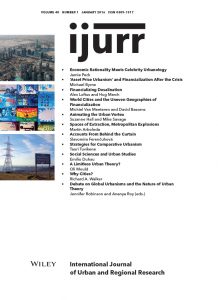This article presents a critique of the popular and public-policy work of Harvard economist Edward Glaeser, which has been constructed at the nexus of neoclassical economic rationality and celebrity urbanology. Widely recognized as one of the world’s leading urbanists, Glaeser has combined a high-flying academic career with public-policy engagement and extensive work as a newspaper columnist and media commentator, enabled by a longstanding affiliation with the Manhattan Institute, a leading conservative think tank. The critique is pointed, but seeks to exceed argumentum ad hominem by calling attention to sociopolitical and institutional factors that have facilitated the accelerated diffusion and enlarged dominion of this model (and mode) of microeconomically rationalized urbanism, including the production of new forms of intellectual marketing, the construction of colonizing variants of urban-economic expertise, and the ongoing rearticulation and creeping consolidation of market-centric policy norms. The article argues that a distinctive form of urban-economic orthodoxy is under construction, based on a potent fusion of scientific reasoning and pop presentation, combining ideologically disciplined applications of neoclassical economics with dissemination in the register of the ‘freakonomics’ franchise. Edward Glaeser’s intellectual accomplishments have been significant, but the ‘Glaeser effect’ is more than a story of individual scholarly endeavor, calling for more than a merely ‘internal’ critique. Its conformity to Manhattan Institute principles testifies to a telling consistency of ideological purpose, contributing as it does to a sustained effort to rationalize and normalize lean and limited modes of neoliberal urban governance, fortified by microeconomic reason.

